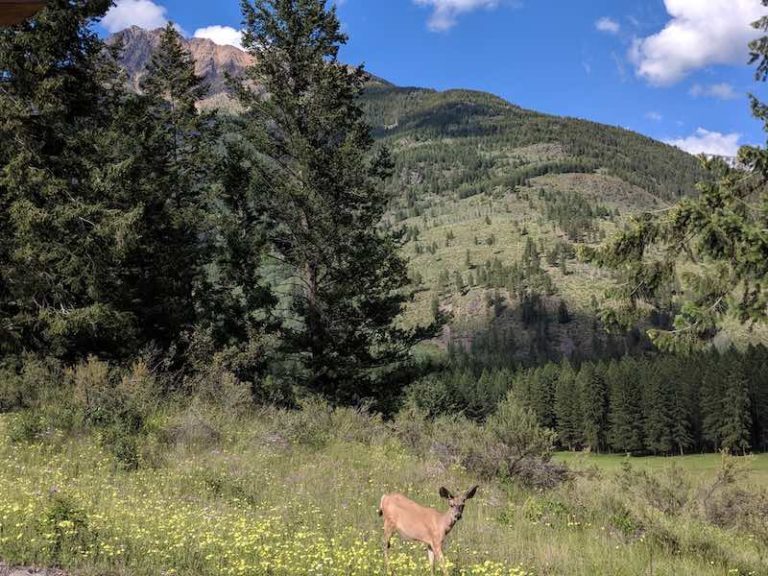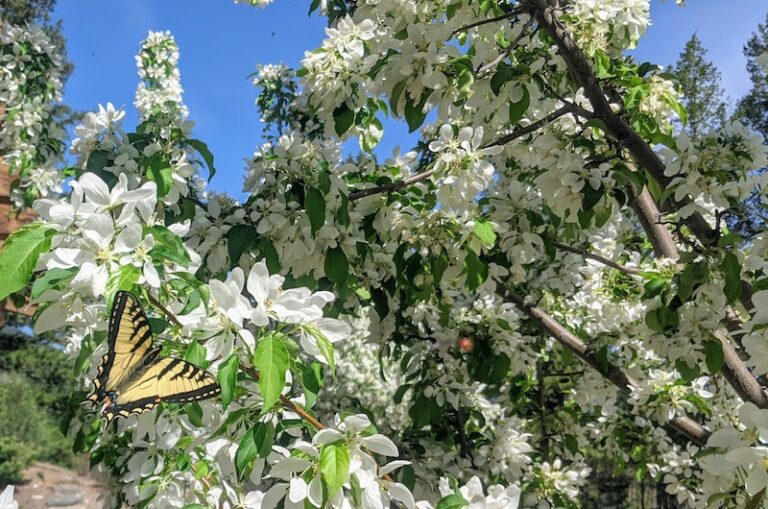Healing Ecological Grief - Meditate in Nature
A new term, ‘Ecological Grief,’ describes our natural reaction to actual or anticipated ecological losses. No wonder there’s a term for this feeling. After all, we’re seeing the loss of species, ecosystems, and meaningful landscapes, all because of acute or chronic environmental change.
Our ecological grief gets fueled by the news. Every day, we hear and read more about the growing impact of climate change. We see images of historic flooding in British Columbia, Australia, and Europe; fires in California, Australia and Greece; droughts on the Canadian Prairies; Brazilian rain forest being cut down; coral reefs dying off. As the natural world comes under more attack, humanity is starting to see and feel that what affects nature affects us as well. Do we need to be reminded that we are part of nature, intimately interconnected? Now potential changes are becoming actual events, not just somewhere else but in our own backyards. The overall impact is a heavy toll on our emotional well-being.
What can we do to counter the effects of ecological grief?
At Clear Sky Meditation Center, our founding teacher Catherine Pawasarat Sensei has long known about one antidote to climate-change stress. She set us to work on a local level, acting with a sensitive and responsible awareness for the whole ecology of life. As soon as the property was ours, Sensei spearheaded all kinds of restoration projects to bring back native plants and animals lost to invasive species and land use choices.
Clear Sky Center, situated in the beautiful wilderness of the Canadian Rockies, offers meditation healing retreats in nature on what we like to call our 310-acre meditation cushion. Since 2005, we’ve offered space and programs to reconnect in a healing way with nature. With our private meditation cabins, we can support people seeking to unplug and reconnect with nature, in silence and relative isolation.
Not everyone knows the term ecological grief. Yet, many of the people who find us and stay in the meditation cabins name the symptoms. The healing they seek is clear; they talk about the profound effect of the trees, the wildlife, the quiet, and the open space. And the food! Some of them meditate, others just need deep rest. And we’re happy to accommodate you for either a wellness retreat or a focused medtation retreat in our cabins.

The Buddha Recommended Nature!
The Buddha himself extolled the importance of going to nature for healing and spiritual growth.
“There I saw a delightful stretch of land and a lovely woodland grove, and a clear flowing river, a village for support nearby. It occurred to me….. ‘Indeed this does well for the striving of a young man set on striving.’ So I, monks, sat down just there, thinking, ’Indeed this does well for striving.’ “
–Ariyapariyesana Sutra.
This is what Clear Sky Meditation Center in the beautiful Rocky Mountains of British Columbia was built to be – a delightful place for those seeking healing and meditation in nature.
Or cabins are there for meditation or quiet contemplative stays. You don’t have to meditate the whole time you’re here. Especially if you’re doing a wellness retreat of three or four nights, don’t feel like you can only come here if you meditate 16 hours a day. Instead, rest and then mix some 20-minute meditations with walks in our 310 acres, or boost your regular practice of yoga or journaling with some meditation, walks in nature, and so on.
For more information about Clear Sky Meditation Center, or to book your own private nature meditation retreat, go to our personal retreat cabins webpage. We look forward to hosting you soon.
More On Ecological Grief
Ecological grief is one of several new terms used to express general dis-ease about the changes happening around us.
Over the past 15 years, several new terms for climate change-induced distress have been introduced to describe the long-term emotional impacts, with ecological grief as a prime example.
Ecological grief is defined as:
“The grief felt in relation to experienced or anticipated ecological losses, including the loss of species, ecosystems, and meaningful landscapes due to acute or chronic environmental change.” (Hope)
This has already been recognized in popular culture. For example, BBC news published an article, Climate grief: How we mourn a changing planet in April 2020. The damage to the planet has truly been a source of grief as much as a source of news.

Ecological Grief As A Response to Environmental Change
Research shows that people increasingly feel the effects of these planetary changes and associated ecological losses in their daily lives, and that these changes present significant direct and indirect threats to mental health and well-being.
Can we do anything else about this ecological grief?
This article from the US’s NCBI makes some suggestions:
- We can change ourselves: it may be overwhelming to think of how powerless we are to change the impacts of global climate change ourselves, and lead to a sense of resignation–but we can change ourselves, how we react, and how we connect with others about it.
- Those feeling this kind of tangible or intangible loss can act to counter it by being in nature itself, connecting with nature.
- With self-healing comes a sense of agency, rather than being subject to changes, and we become the author of our own lives.
Climate change, and the associated impacts to land and environment, for example, have recently been linked to a range of negative mental health impacts, including depression, suicidal ideation, post-traumatic stress, as well as feelings of anger, hopelessness, distress, and despair.
Three Ways to Deal with Ecological Grief
The following are suggestions from the University of Calgary:
- Focus on what you can control. This empowers you and is preferable to focusing on negativity about what you cannot control.
- Find solace in natural spaces. Ground yourself in nature for at least twenty minutes to get the effects. Lying on the grass, walking in bare feet, spending time near water–make these part of your week or day. Imagine being caught in ecological grief and not seeking out your local nature spots!
- Increase your connection to community. Sometimes we isolate when we’re feeling low, and this compounds the effects. Even being in a social environment, like a coffee shop, can help. Seek out clubs in your local area, or start one!
“Mental health restoration through natural environments has been an area of study for environmental psychologists. Studies have shown that tending to an outdoor garden or taking a walk in a natural environment can have positive impacts on well-being.” – University of Calgary
Evidently, being in nature is conducive to good health. Reconnecting with nature can be a way to be aware of just what is to be maintained, not only a sense of loss.
Why does it feel good to be in nature?
- It lowers the everyday stress of living in the sympathetic nervous response fueled by information glut, known as the fight or flight response of the nervous system.
- Being in nature can up one’s opportunity for living more in line with the parasympathetic or calm reaction of the nervous system.
- Meditation, too, can help us get there.
- Breathing in pure oxygen in nature is certainly an advantage over the fumes prevalent in cities.
Clear Sky Meditation Center offers so much in terms of nature and opportunities for wellness:
- Horses, while not for riding, are enjoyable companions from time to time for outdoor meditators
- Wildlife: deer, elk, badgers, birds
- Newly marked trails to explore and hike
- The picturesque Rocky Mountain valley of British Columbia with a view of Bull Mountain from spots all over the 310 acres of land
How Meditation Can Help with Ecological Grief

Meditation builds calm, equanimity, and compassion.
Meditation is known for reducing levels of stress.
- It increases calm.
- It increases equanimity, promoting healing, wellness, and a sense of agency rather than resignation.
- As we become more calm and less reactive through guided meditation or private meditation, we can further help the planet by being advocates of compassionate care of mother earth. This is something worth celebrating!


